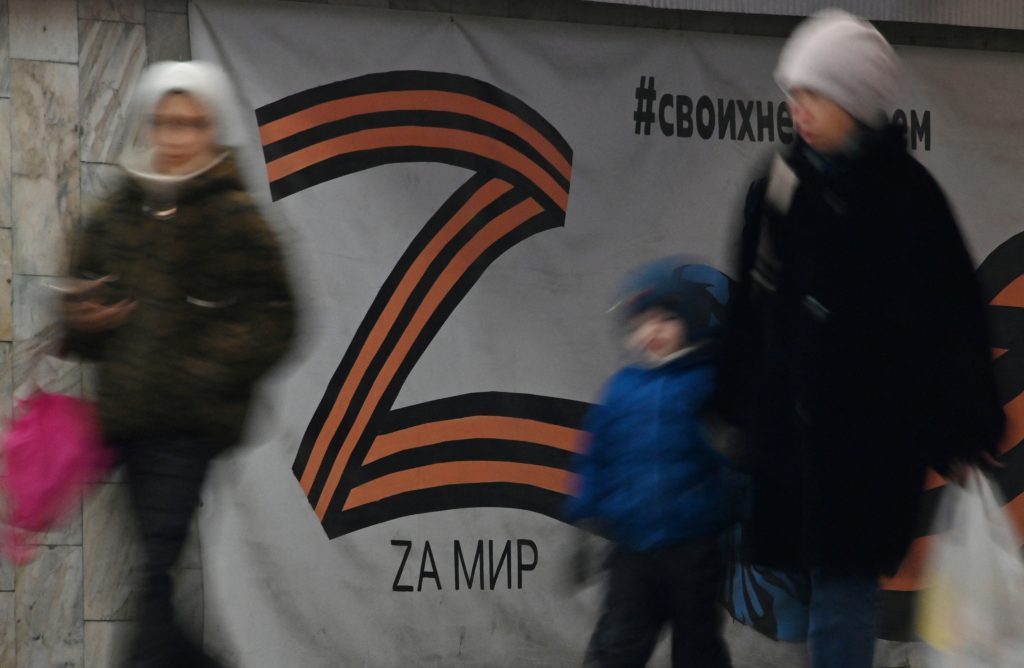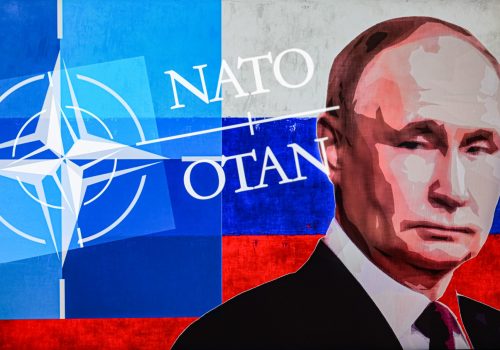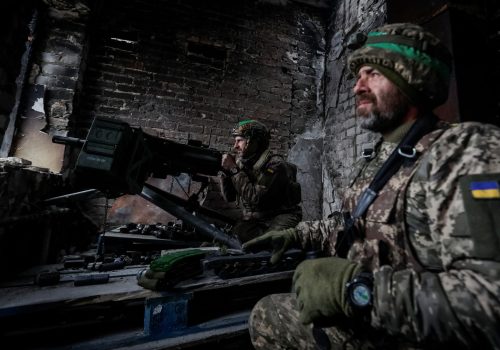Ever since the full-scale invasion of Ukraine began on February 24, 2022, the Kremlin has worked hard to create the impression of enthusiastic support for the war among the Russian population. However, many continue to question the true scale of this public backing. In order to get a sense of Russian attitudes toward the invasion, we need to go beyond official statements and explore everything from online activity and fundraising initiatives to psychological factors that may be shaping opinion in Putin’s Russia.
Polling data remains the most commonly cited evidence of widespread Russian support for the invasion of Ukraine. However, such indicators must be treated with a high degree of skepticism due to the obvious risks inherent in expressing anti-regime opinions in an authoritarian state such as modern Russia. Over the past year, various polls have identified strong levels of public support ranging from 55% to 75%, with relatively little fluctuation. The Levada Center, which is regarded by many international observers as Russia’s only legitimate independent pollster, has conducted monthly polls since the beginning of the invasion that have consistently indicated public backing of over 70%.
While opinion polls indicating pro-war sentiment must be treated with caution, there is very little evidence of any active opposition to the invasion within Russian society. In the weeks following the outbreak of hostilities, relatively small protests took place in a number of Russian cities, but this trend failed to gain momentum. Despite awareness of the atrocities taking place in Ukraine and the Russian military’s unprecedented losses, there remains no real anti-war protest movement in Russia.
This absence of anti-war activity is perhaps unsurprising. The Kremlin has adopted a series of draconian laws in the wake of the invasion that criminalize any criticism while outlawing use of the word “war” in favor of the euphemistic “Special Military Operation.” As a result of these legislative changes, numerous high-profile opposition figures have been given long prison sentences for their anti-war stances. At the same time, it is important to note that although more than one million Russians have fled the country in response to the invasion of Ukraine, very few have taken advantage of their newfound freedoms to stage anti-war rallies outside Russia.
Stay updated
As the world watches the Russian invasion of Ukraine unfold, UkraineAlert delivers the best Atlantic Council expert insight and analysis on Ukraine twice a week directly to your inbox.
Public support for the invasion can be seen in the many examples of ordinary Russians mobilizing to back the war effort. Across the country, large numbers of fundraising initiatives have emerged to help supply Russian soldiers with everything from drones and radios to food and warm clothing. These grassroots efforts are entirely voluntary and point to high levels of public sympathy for the Russian soldiers currently serving in Ukraine.
A further indication of pro-war sentiment within Russia is the revival of Stalin-era denunciations targeting anyone seen as critical of the war. There have been numerous high-profile instances of colleagues, teachers, and even family members reporting people to the authorities for voicing anti-war opinions. During the first half of 2022 alone, Russian media and information space regulator Roskomnadzor reportedly received 144,835 individual denunciations.
Social media remains comparatively free in today’s Russia and provides important insights into the public mood. Young supporters of the war have largely congregated on TikTok, where they often form pro-war groups and post messages celebrating the Russian army.
Telegram has emerged as a key platform for Russian audiences seeking to follow the invasion. There are a substantial number of military-themed accounts offering some of the most credible coverage of the war, often including remarkably frank criticism of the Russian establishment. These pro-war accounts have gained considerably in status since February 2022 and have attracted millions of followers.
Eurasia Center events

Research conducted by Ukraine’s Open Minds Institute has identified widespread pro-war sentiment on Russian social media. While it is important to acknowledge that the Kremlin is believed to invest heavily in bot farms and troll armies, the vast majority of the accounts studied by the Open Minds think tank appear to represent real people with their own wide-ranging interests and long histories of posting on different topics.
Support for the war on Russian social media tends to be expressed in abstract terms relating to national pride rather than any concrete benefits deriving from the invasion. Accounts based in Moscow demonstrate the lowest levels of interest in the war, while regions closest to Ukraine are the most negative. Meanwhile, areas of Russia furthest from the conflict tend to be more positive. Posts and comments closely mirror changing events on the ground and typically reflect the latest developments in Ukraine, indicating high levels of awareness regarding the current status of the invasion.
While it is impossible to determine exact levels of pro-war sentiment within Russian society, it is clear that the invasion of Ukraine enjoys considerable backing. What is fueling these positive attitudes toward a war that has horrified global audiences?
A combination of factors have shaped Russian public opinion in favor of the invasion. Propaganda has played a central role in this process, with Russian audiences subjected to years of relentless messaging throughout the Kremlin-controlled mainstream media preparing the population for war with Ukraine.
Many Russians appear to be driven by feelings of faith and obedience toward the authorities. Other factors include notions of national identity rooted in the imperial past and a strong desire to belong. Many Russians may be choosing to adopt pro-war positions in order to associate with like-minded people and demonstrate their own patriotism. Others may be motivated primarily by a desire to avoid accusations of disloyalty.
Unfortunately, such conformity often comes at the expense of critical thinking or moral constraints. This has made it possible for millions of otherwise unremarkable people to support the largest European war of aggression since the days of Hitler and Stalin. Some observers speculate that much of this support is insincere and would soon evaporate if circumstances within Russia changed. Nevertheless, the currently available evidence indicates overwhelming acceptance of the invasion, at the very least.
Sviatoslav Hnizdovskyi is founder and CEO of the Kyiv-based Open Minds Institute.
Further reading
The views expressed in UkraineAlert are solely those of the authors and do not necessarily reflect the views of the Atlantic Council, its staff, or its supporters.

The Eurasia Center’s mission is to enhance transatlantic cooperation in promoting stability, democratic values and prosperity in Eurasia, from Eastern Europe and Turkey in the West to the Caucasus, Russia and Central Asia in the East.
Follow us on social media
and support our work
Image: People walk past a banner with the symbol "Z", used in support of the Russian armed forces involved in a military conflict in Ukraine, in Omsk, Russia April 19, 2023. REUTERS/Alexey Malgavko




